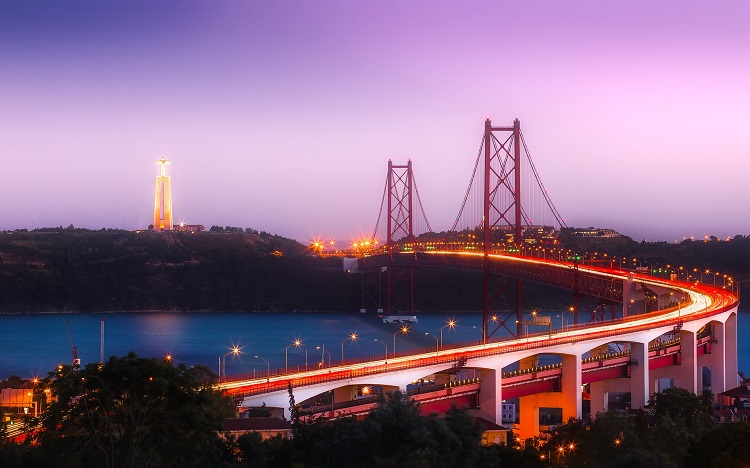
BY W. VICTOR GAO, Publisher and Managing Director
The ASPENCORE Group
CASCAIS, Portugal — “Desenrascar.” My host leaned in and enunciated with a gleaming smile. “Give us any problem and we shall solve it, even if barely.” José Franca, former Secretary of State for Education of Portugal, explained as we tucked into a delicious plate of peixe ao sal at a seaside restaurant 30 minutes north of Lisbon. He was quick to note that it was no self-congratulation of his beloved homeland, at least not entirely. “The problem is, why do we get into so much trouble in the first place?”
Looking at Portugal today, the reader would be forgiven for attributing Franca’s question to the humility of this gentle corner of Western Europe. Emerging from the 2008 global financial crisis, Portugal has engineered higher growth, lower inequality, increased employment, and decreased budget deficit, all the while defying austerity mandates from Brussels. Not that Brussels seemed to mind. Jean-Claude Juncker, President of the European Commission, publicly praised Portugal’s “beautiful economic progress” in March during a parliamentary meeting with Portuguese Prime Minister António Costa.
But Franca, founder of analog semiconductor design firm Chipidea, is no casual observer of Portugal’s national development. “Much of the buzz we hear these days about Portugal’s bourgeoning tech scene is, of course, wonderful, but we run the risk of believing our own hype and not doing enough to ensure early progress takes root and sprouts future progress.”
Case in point: Web Summit, deemed “the best tech conference on the planet” by Forbes Magazine and coined “Davos for geeks” by Bloomberg, moved to Lisbon two years ago and has drawn such A-list speakers as Jean Liu of Chinese ride-share and autonomous driving technology company Didi, Brian Krzanich of Intel, and the late Professor Stephen Hawking of Cambridge University, along with prominent venture capitalists and tech media moguls. Yet there seems to have been little subsequent foreign direct investment in research and development into Portugal. Without such investments, the thousands of engineering students that graduate each year from Portugal’s top universities must still find work abroad.
But more important than talent drain, the absence of a strong engineering base means that a country would remain stuck as a net user of technology rather than producer . It means that the country would be absent at the table where future technology standards are set, supply chains shaped, and long-lasting structural advantages concretized. Indeed, much of world history proves that, over the long run, not only are producer nations principal drivers of economic growth, they also reap most of the rewards. In an article for national newspaper Público in 1998, Franca called this power hierarchy a technology league of nations and advocated that Portugal’s industrial policies ought to facilitate the nation’s rise as a technology-producing powerhouse by nurturing an agile, outward-looking, but indigenous research and design talent base.
Speaking of agility, you may have noticed that at ASPENCORE, we’ve been covering a little more ground than usual the last few weeks as we have just concluded our marquee China IC Summit in Shanghai and are busy preparing new ventures. In recognition of China’s continuing gravitational pull not only as a global manufacturing mega base but also increasingly the leader in artificial intelligence and other cutting-edge technology, we are putting together a new conference, the ASPENCORE Double Summits featuring global C-level leaders from both manufacturing and supply chain platforms.
Some of the speakers we are expecting: Tyson Tuttle, CEO of Silicon Labs; Jean-Marc Chery, incoming CEO of ST Microelectronics; and Nicky Lu, President of Taiwan Semiconductor Industry Association. We are also honored to host again Professor Wei Shaojun, President of the IC Design Bureau of China’s Semiconductor Industry Association, one of the most influential advisory bodies to China’s industrial and economic policymakers. We look forward to sharing more details of the Double Summits with you and invite you to join us in sunny and warm Shenzhen this November.
Meanwhile, at our North American Head Bureau, our designers are hard at work making our sites more intuitive to navigate and easier to read. Running through our rigorous usability testing are a slightly larger font, a cleaner layout, and a few new discovery modules that will let your curiosity guide you to other corners of the ASPENCORE network. As we peruse our soon-to-be-released biannual Mind of the Engineer survey, we see that our readers are traveling more than ever to collaborate with their colleagues. That’s why we have also included a much-needed mobile refresh so you can just as easily follow your favorite editor on the train, at a boarding gate, or in a café.

Back in Lisbon, as my generous host dropped me off by Terreiro do Paço, I suddenly remembered a favorite childhood TV show. A scientist and secret agent, MacGyver always carried a Swiss Army knife and duct tape and evaded all kinds of sticky situations using the limited resource at his disposal. Over time, the name of the show’s hero became synonymous with creativity and resourcefulness and entered American vernacular speech, such as Gizmodo’s 2013 article, “How NASA MacGyvered the Crippled Apollo 13 Mission Safely Home.” Yes, getting in trouble is never comfortable and, in the case of hazardous scientific missions, can quickly turn deadly. But human courage and ingenuity in the face of adversity — our ability to desenrascar — have long been decisive factors in our survival and evolution. And that is a worthy foundation to build any nation upon.
As ever, if you have a story tip or suggestion for us, you can write me at victor@aspencore.com or contact your favorite ASPENCORE editor. Thank you for your support.
Advertisement
Learn more about Electronic Products Magazine





